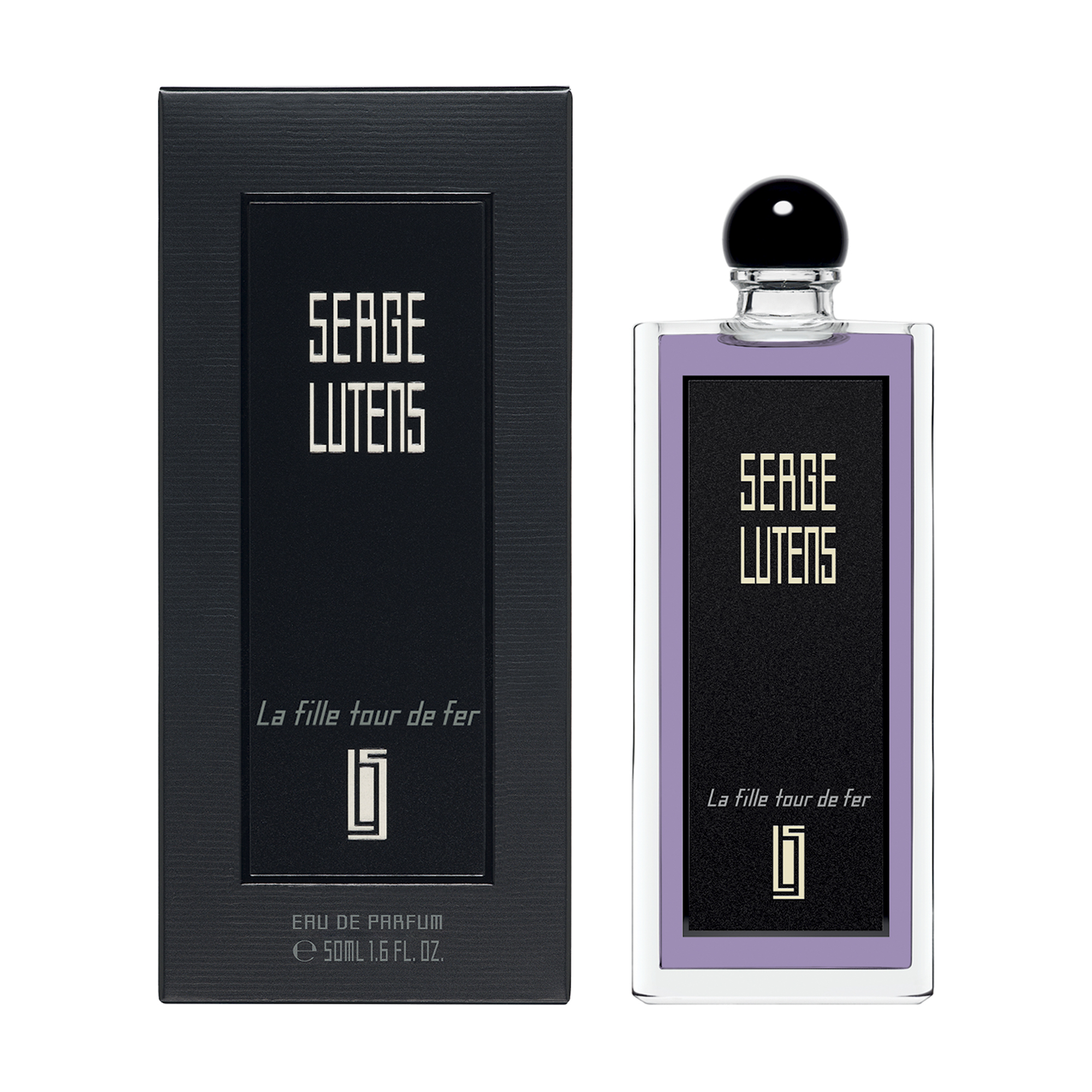La fille tour de fer, perfume of rose and revolt
Serge Lutens’ latest perfume was launched on 1 April. It was no joke but rather a cryptic message. This fragrance was created around rose, pink berries and iris. It’s another deeply beautiful perfume, just as this multi-talented artist knows how to create. But this rose has thorns and is very much a scent of revolt, if Serge Lutens is to be believed. Isabelle Cerboneschi.
When I first smelled La fille tour de fer, Serge Lutens’ last perfume, I was seduced and intrigued by this multifaceted rose. There was nothing mawkish about it, like so many other opuses on the market. It seemed to carry a secret, like the kind you find in a trunk that’s been in the attic for years.
This fragrance was both dark and luminous. Of course, alongside the rose (Turkish and Bulgarian rose absolute), there were notes of iris, that marvellous root that grew underground and has been transmuted into a powdery scent. At the launch, which took place in Paris last February, we were told that pink berries added a certain lightness to the formula.
Serge Lutens wasn’t in Paris, so we exchanged emails. The first time we met was some twenty years ago in Les Salons du Palais Royal, his first boutique in Paris, designed as a tea room but dedicated to his fragrances. We can do with e-mails.
In his unfiltered answers, it’s easy to understand that this fragrance carries a message of disenchantment with our times, far too dark for this man in black who knows only how to create beauty. Artists have more right than anyone else to say what they think loud and clear about this foretaste of dystopia. If everyone could declare war as gracefully as Serge Lutens and his perfume La fille tour de fer, the world would be a much better place.
INTERVIEW
Your fragrances are like unwritten chapters in your autobiography. Which one did you want to tell with La fille tour de fer? Who is she?
Serge Lutens : She’s the one who, in a few words, concludes my way of thinking: “I’m fed up, what about you? It expresses my weariness of this world which, under the guise of fairness and (false) benevolence, welcomes you into a disembodied, nun-like society that seeks not to integrate, but to assimilate. Now, I only like monstrous differences, the extreme, Nietzschean characters. I understand more and more this philosopher who predicted for mankind a near future in which disease would have been eradicated, all forms of suffering would have been cancelled out, work would no longer exist; in short, everything that didn’t go in that direction would have either gone mad, been imprisoned or died! Death is sometimes the ultimate solution to unbearable things, and in particular to this society that is nauseating. It’s silent, invisible, but it stinks!
You live in Morocco, but isn’t the vivacious, independent Parisienne featured in this fragrance a vision of the mind, an embellished memory, rather than the expression of a woman of today?
If there is a woman, it’s in me. She embodies my revolt. She’s sacrificed, she’s flayed, she’s a Christic! She has vengeance on her lips just as I have a thorny tongue.
You haven’t worked with roses for a long time. What was the impulse that gave you the desire?
It’s the fifth in my perfumery, I think: Rose de nuit, Sa majesté la rose, Cracheuse de flammes, La fille de Berlin and La fille tour de fer. The name of the latter is a reference to another of my perfumes, La Vierge de fer. It has a certain cruelty about it, a pink, an amorous hatred! I’d like her to escape from the general mawkishness, with a string of insults in her mouth.
When I first smelt this fragrance, it seemed to me that I was smelling a ‘dusty’ rose – a noble dust, of course, clean and slightly powdery, in the tradition of your perfume Iris Silver Mist. Is there an olfactory link between the two? And if not, how do you explain this connection?
This rose has the virtue of sharing memories. On the one hand, it’s a fresh garden rose whose scent has now disappeared from my mind (but which I happened to smell). It’s not the same shock as Proust’s madeleine that we’ve been fed, but it triggers such a torrent of memories that it’s unavoidable! It’s a nervous, irritated memory. On the other hand, there’s that smell of dried roses, of potpourri, which combines with that fresh smell. This encounter with the dust we will become and the nerve of memory that is a fresh rose. For me, dust is a dream, crushing like silk that loses its substance but not its sheen. It is the most beautiful fabric on earth, that of the ghost.
La fille tour de fer is a subtle rose that hides its game well: at first it seduces with its soft, enveloping side, almost like a rose ice-cream, then develops another aspect of itself, rougher. It reminds me of Jean Cocteau’s tribute to Marlène Dietrich: “Marlène Dietrich, your name begins with a caress and ends with a whip ». Is there any of this in La fille tour de fer?
It’s even truer in La fille de Berlin! For La fille tour de fer, it’s more a question of memory, although I can’t really define it. Perhaps it’s the secret of her name. It must be insidious, growing inside us like a lofty illness, a distant pain.
















